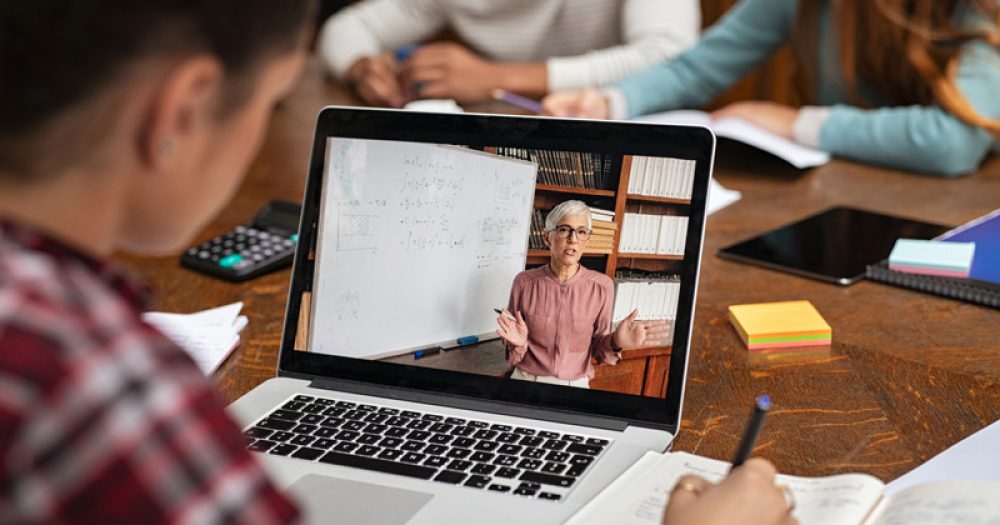Teachers have been warned against using live-stream technology to run classes from home, but one school running lessons virtually says they feel it keeps children safer.
The National Education Union issued guidance this week on distance learning, saying it “cannot be business as usual” while schools are closed, warning online lessons should be kept “to a minimum”.
Mary Bousted, the union’s joint general secretary, said: “Teachers cannot be working as though they are sat in front of a class, and children cannot be expected to be able to study full time with online resources.”
Part of the secondary school guidance states teachers should only live-stream lessons from their homes, or engage in video-calling, in “exceptional circumstances” with the parent.
Concerns include teachers’ online safety, for example the opportunity for screengrabs to be taken of a staff member.
A survey of more than 6,700 respondents by pollsters Teacher Tapp last week showed 64 per cent of schools were using an online learning platform to set or collect work.
Just two per cent of state schools were using live video conferencing, compared to 28 per cent of private schools. But eight per cent of all schools used online chatting, while 19 per cent provided online video clips.
Geoff Barton, general secretary at the Association of College and School Leaders, urged “caution” over live-streaming lessons, but said teachers will know their groups “better than anybody” and are “best placed to make a judgement on the use of these platforms”.
He said it can be “problematic when used with groups which may be difficult to marshal, have varying levels of engagement, and in which individuals may find ways to abuse the technology”.
Staff at King’s Leadership Academy, a free secondary school in Warrington, were consulted on potential live-steaming plans before school closures were announced.
The school uses video call platform Zoom, which they say meets safeguarding requirements because they can enable security settings and give teachers the option to turn off the camera.
All children are given secure digital tablets already as part of the school’s model.
Vice principal Katie Sharp said unions were “right maybe to bring this up, if staff and children aren’t protected then live streaming I suppose can be problematic”.
The FBI has issued a warning over “zoom-bombing” in America, where conferences were hijacked and disrupted by pornographic or hate images.
Anne Longfield, the children’s commissioner, said as popularity of video conferencing has grown, so has “concern for how secure the services are”.
When using the Zoom service, she recommended locking the classroom – so no one else can join – using the “virtual waiting room” feature, and stopping private messaging.
Sharp added: “We’ve had this in the pipeline for weeks where things were being checked, safeguarding measures – we worked with the local authority to tell them what we are doing, to get them to proof read our policies and make sure all those structures are in place so it is safe and manageable for all involved.”
Sharp also said that live-streaming could be a “deterrent” to parents who don’t keep children safe at home.
When asked about pupils taking screengrabs of staff, the school said pupils had online etiquette lessons about using the system and have “strong social norms to encourage professional behaviour”.
But many schools aren’t using it – particularly primaries. Ottery St Mary Primary School, in Devon, uses live-streaming for staff calls only, with Google Classroom for pupils’ communication.
Issues for them include lack of good internet access, parents having to deliver different curriculums for children in different years, and safeguarding concerns.
Assistant head teacher Frankie Finlay said: “There is a big difference in that we are primary, and I think that’s probably crucial to it.
“We didn’t want to add layers of new things or look into new technology or jump into something different.”
The NEU’s guidance states “online lessons are not desirable for primary children as the teacher-pupil interaction is not easily replicated”.








Can a school demand pupils to switch on their camera during an on line assessment or lesson?